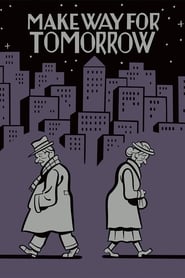Both metaphorically (and literally) soft-spoken, this film would, to quote Orson Welles, "make a stone cry."
I will never forget my amazement when I saw the [the film]. That screening remains one of the most powerful moments of the decade for me. The nearly miraculous way in which McCarey manages to avoid the bathos inherent in such a subject, steering clear of sticky pity, of condescension and moralizing sermons—it all transfixed me. It was as though an arrow had struck me and stayed vibrating in my heart.
— Bertrand Tavernier (Criterion)
Lucy interrupts Anita’s bridge class by sitting in a creaky rocking chair and giving away the players’ hands. Her bumbling earnestness is screwball in slow motion, though the payoff for the extended sequence is an inverted punchline. […] The final act [is] an elegiac blend of mirth and sorrow. Barkley adjusts his clothing with youthful self-consciousness, treating this more like his first date with Lucy than his last. […] This glimpse of happiness proves short-lived, however, and the film ends as it must, with the pair bidding each other farewell, victims of an economic and moral catastrophe so big their decency cannot hope to push back against it. The nation’s economic fortunes would reverse, of course, but not in time to save these two, and knowledge of that only makes this wrenching movie even sadder.
— Jake Cole (Slant Magazine)
Make Way for Tomorrow’s opening visual aria ["Honor thy mother and father!"] leaves one unprepared for the subtle, insightful observation to follow. […] Having moved his camera through numerous class settings, McCarey climaxes Make Way for Tomorrow at a ritzy upper-class hotel, a locale perhaps frequented by the thieving devil-may-care protagonists of Ernst Lubitsch’s Trouble in Paradise. But this hotel is as harsh and foreboding as it is beautiful (the weight of the Great Depression crouches at its doors), and it finally seems a hollowed out purgatory where clueless souls wile away the hours of their lives.
— Keith Urhlich and Ed Gonzalez (Slant Magazine)

